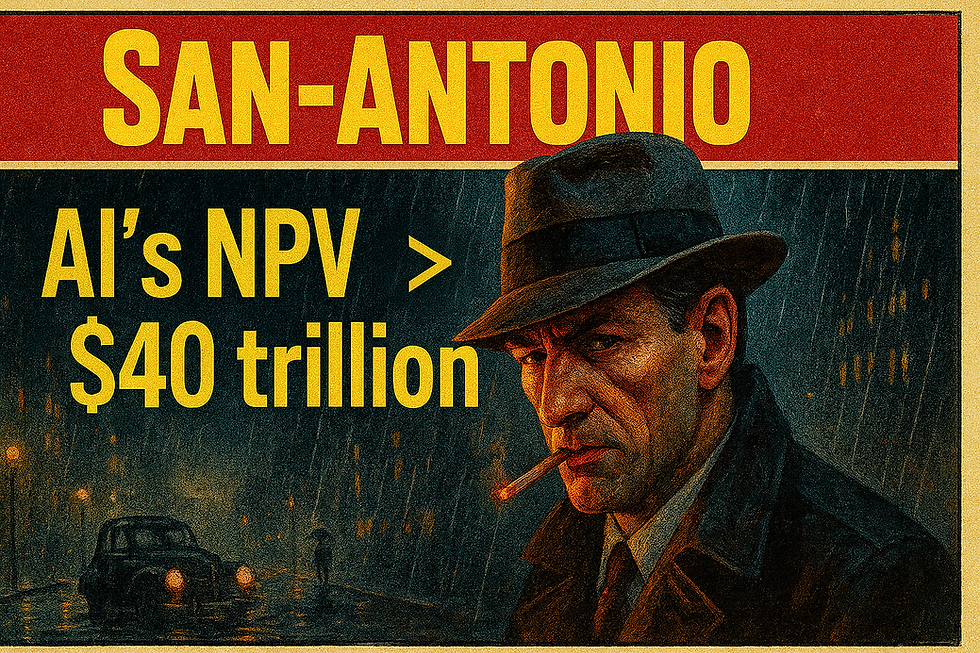Deconstructing Budgets
- Laurent Bouvier

- May 11, 2025
- 3 min read
The multi-dimensional renegotiation process in which the U.S. administration has engaged responds to a growing desire for radicalism rather than incrementalism. If the spirit of the times calls for bold resets, it is worth visiting a controversial yet fitting management tool: zero-based budgeting.
At its core, Zero-Based Budgeting (ZBB) initiates an annual budgeting process with a blank slate, constructing a budget not by reference to the past, but according to what is sensible at present, while looking to the future. Each cost must be rigorously justified anew based on its contribution to a strategy: ‘If this budget item did not exist, would it be created today?’
As imagined in the TV series ‘Severance’ (2022), the corporate world, represented by Lumon Industries, can become a closed system that is ritualized, opaque, and devoid of meaning. ‘Why are we down here still working in the dark?’ asks one of the employees while performing an impenetrable task in the Macrodata Refinement department. ZBB has the potential to drain the corporate swamp by forcing every cost, structure, and activity to re-justify its existence.
ZBB was designed in the 1970s in response to concerns about macroeconomic growth, the rise of bureaucracies, and demand for greater accountability. Jimmy Carter promoted ZBB during his ‘76 presidential campaign, aiming to reduce waste and inefficiency in the federal government. The implementation could be generously called ‘a success – but a modest one’ due to its complexity.1
At its core, ZBB is more than just a budgeting method; it is a mindset, an attempt to turn every cost item into a strategic investment. Proponents argue that ZBB helps move from a top-down ‘doing more of the same with less’ to a bottom-up ‘doing what is right with the right amount’ mantra.
In M&A, a ZBB perspective helps develop an unforgiving lens for a target’s due diligence, valuation, and integration, capitalizing on a change of corporate governance, as notoriously embraced by 3G Capital.
I also find the approach particularly relevant to sustainability and artificial intelligence (AI) which share many similarities and where pressure to invest is high but hard to calibrate because value creation is uncertain. A ZBB approach enables firms to establish principles for investing in a structured and disciplined manner, without resorting to performative gestures or excessive experimentation.
Many reports indicate that a ZBB process can ironically create an administrative monster of its own, casting doubt on its potential for net value creation. Consequently, ZBB has struggled to establish itself as a widely adopted tool, despite growing interest in it following the Great Financial Crisis.
To unlock ZBB’s potential, Alvarez & Marshall present a pragmatic approach to ZBB to minimize the risk of over-engineering. They argue that ZBB processes can be implemented in an organization within 18 months and that firms can achieve double-digit percentage cost savings in targeted areas.
As in the song ‘The Deconstruction’ (2018) by the brilliant L.A. rock band Eels: ‘And every block you've built on/It's going to come right out […] The reconstruction will begin/Only when there's nothing left.’
In a world deconstructing all the working assumptions of the last fifty years, a practical approach to ZBB has a promising future.




Comments